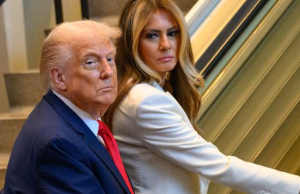
My name is Emily. I’m 29 and entering the final month of my first pregnancy.
There’s this strange mix of anticipation and anxiety that seems to wrap around me constantly—like I’m on the edge of something beautiful yet incredibly overwhelming. On quiet afternoons, when I’m alone on the worn beige couch in our modest home just outside of Austin, I place my hand on my belly, feel the gentle fluttering of my baby’s feet, and softly whisper, “Mommy’s right here.”
My husband, Lucas, is 33 and works in corporate accounting. He constantly says he’s overloaded, stressed, and needs to “recharge” over the weekends. Most Fridays, like clockwork, he drives out to his parents’ place, which is two hours away. I’ve gotten used to the stillness—moving from kitchen to couch, balancing a belly that grows heavier with each passing day. Lucas barely lifts a finger around the house. Once, I asked him to help arrange the nursery. He glanced up and muttered, “Aren’t you on maternity leave? You’ve got time.”
I’ll never forget a Saturday not long ago when I tried to carry a heavy bag of dog food in from the car. I stood in the driveway, sweating, my back aching, just wishing for a hand. But he was off hiking with his dad. I texted him, and all I got back was: You’re strong. You got this.
Sometimes I sit alone in the kitchen, lost in thought, wondering, “Did I marry the wrong man?” But then my baby kicks softly, reminding me I’m not truly alone.
Lucas didn’t start out this way. In the beginning, he was attentive and kind. But once I became pregnant, everything shifted. He turned moody, cold, constantly snapping. One day, I forgot to pick up his preferred brand of coffee, and he said flatly, “Seriously? You stay home all day doing nothing and can’t remember coffee?” His words stung, but I stayed quiet. He’d just say it’s my hormones. I swallowed the pain, forced a grin, and whispered, Just wait. Once the baby’s here, it’ll get better. But part of me feared I was only fooling myself.
That morning, I woke up early with a dull ache in my back. I shuffled into the kitchen and made coffee for Lucas. I set the cup down beside a simple breakfast. He walked in scrolling his phone. “The toast’s burnt. Can’t you even manage a toaster?”
I bit my lip. “Sorry. It’s been acting weird.”
“Whatever,” he muttered. “I bet Mom’s already got pancakes ready.” It wasn’t just about the toast—it was another jab. His mom, Denise, was the golden standard I could never reach. I’d heard the comparisons so many times they started to feel like background noise. But today, with my ankles swollen and belly stretched, I couldn’t just take it silently.
“Oh, and,” he added, “Mom invited us to dinner tonight. Don’t forget a gift. She’s still mad about that hideous candle you gave her.”
“I’m staying in. I need to rest. My due date’s coming.”
“Don’t start with that again. Pregnant women aren’t weak. My mom worked until the day she popped. You just sit around posting pictures on that silly blog.”
That blog is my little lifeline. I share sunsets, the meals I cook, my highs and lows. Stuff Lucas never even notices.
Later, after eating dinner by myself, I cleaned up the kitchen in silence. The house felt unusually empty, like I was the only soul in it. I pressed my head against the cabinet door and held back tears. I used to imagine pregnancy would be full of love and support. Instead, I feel like a burden, a housemaid in my own home.
One Sunday morning, Lucas surprised me by saying, “Emily, pack your bags. We’re heading to Colorado Springs with my folks next week. One last trip before baby time.”
I froze. “Next week? The doctor said I could deliver any moment.”
He waved me off. “God, you’re always so dramatic. Fresh air will be good. Mom said mountain air works wonders.”
I knew arguing wouldn’t help. I quietly packed, praying nothing would go wrong. But on the day of the trip, just as I settled into the car seat, I felt a strange pressure in my lower belly. Then a warm gush soaked through my dress. My water had broken.
“Lucas, it’s happening. We have to go to the hospital. Now.”
He turned to me, annoyed, as though I’d interrupted his vacation. “What? Right now?”
“Yes! This isn’t a drill! The baby’s coming!”
Instead of rushing me in, Lucas stepped out and stared at the wet spot. “Seriously? You ruined the seat? You couldn’t have held it?”
I sat there stunned. “Lucas, please. I need help.”
He let out an annoyed sigh, then yanked the door open. “Get out. I’m not ruining this car. Call an Uber or something.”
I froze. “What are you saying? I can’t go by myself.”
“I don’t have time. My parents are waiting. I’m not missing this trip just because you’re freaking out.” And then, right in front of my shocked eyes, Lucas pulled my suitcase from the trunk, set it down by the curb, and drove off, leaving me standing alone on the sidewalk as the first contraction started to tighten my abdomen.
I gathered what strength I had left and called for an ambulance. Just then, a car pulled up beside me. “Emily?” a familiar voice said. It was Rachel, the neighbor who lived a few houses down. She stepped out, her face full of concern. “Your water broke! Get in. I’ll take you.”
All the way to the hospital, she held my hand tightly, offering comfort. “Where’s your husband?” she asked gently. I didn’t answer. I stared at the window, tears rolling silently down.
The next thing I knew, I woke under the pale fluorescent lights of the hospital. When I opened my eyes, Rachel was by my side, holding a paper cup of coffee, still warm.
“You’re awake,” she whispered. “You and the baby are okay.”
“My baby…?”
“It’s a girl. She’s perfect,” Rachel said, gently squeezing my hand. “Everything went well.”
Not long after, the door swung open and my parents rushed in. My mother fell into my arms, crying. My father, usually stoic, looked shaken, his eyes rimmed red. “We’re so sorry, Emily,” my mom said, weeping. “We should’ve been there for you.”
Rachel was heading out when she turned and said, “There’s something else. After I brought you here, Lucas called me. I didn’t answer. He left a message. Just one question: Is Emily okay?”
I laughed bitterly. That’s all he had to say after leaving me on the side of the road.
Rachel looked straight at me. “If you ever need someone to back you up, I saw it all. I’ll speak up.”
That night, a nurse quietly approached. “Miss Rachel left a note and an envelope. Said you might need it.” Inside was surveillance footage from the ER—me being wheeled in, soaked and silent. Undeniable proof. I looked at my sleeping daughter and whispered, “No one will hurt us again. Not ever.” And just like that, I knew—this was my beginning.
Three days later, Rachel visited again. “Emily, have you seen the news?” she asked, showing me a video on her phone. My stomach flipped. There I was, heavily pregnant, trembling on the sidewalk as Lucas drove off. A passing med student had filmed it. The clip had gone viral—over two million views in two days.
“People didn’t know who you were at first,” Rachel said softly. “But someone traced the license plate. That’s how Lucas got identified. Your info’s safe. But everyone knows what he did.”
His public image was crumbling. “He’s been suspended,” she added. “And this morning, he got fired. They cited damage to the firm’s reputation.”
I didn’t know what to feel. Maybe, just for a moment, justice had a voice.
I left the hospital with my baby girl in my arms, head swirling with thoughts. My parents had set up a room just for us. Three days after that, the messages started coming in—Lucas, calling nonstop, texts full of guilt. Don’t exaggerate this. I panicked. My parents are devastated.
I stayed silent. Then the blame started: You cost me my job. This is your fault. That was my line. Time to fight back.
My dad, once a well-respected lawyer, connected me with a seasoned divorce attorney named Clara Weston. I handed her everything—audio clips, hospital footage. Clara nodded. “This is more than enough. Let me do the hard part. You focus on your daughter.”
We filed for divorce. Lucas was furious. “You’re ending our marriage over one incident? What do you want—money?”
I kept calm, quietly recording the call, then forwarded it to Clara.
“He’s resisting,” she told me. “But that’s fine. We’ll take it to court.”
Then came a twist—his ex-employer, hoping to save face, submitted Lucas’s financials, including a bonus he hadn’t disclosed. Clara immediately filed to freeze those funds to ensure child support.
At our first mediation, Lucas showed up a mess—no lawyer, clothes wrinkled. “She’s dragging my name through the mud,” he barked.
Clara remained composed. She played the clips, then the hospital footage. The room was dead silent. “You talk about parenting, but maybe it’s you who isn’t fit,” she said.
Days later, Lucas signed the papers. When the court finalized support, I stepped outside into the cool night air, holding my daughter. “We’re free now,” I whispered. “And everything is about to change.”
After our divorce, word spread. Lucas’s house was foreclosed. His mother had to shutter her café. Business dried up. Lucas vanished, eventually turning up as a waiter in a remote town.
As for me, I returned to work. With help from my parents and Rachel, life fell into place. My daughter, Grace, was thriving. One day at the park, a woman stopped me. “Are you Emily? I read your blog. You’re brave. Thank you.”
I smiled. Freedom was sweeter than anything I had imagined.
Time passed. Rachel and I grew close—more like sisters than neighbors. Through her, I met her son, Daniel—a 32-year-old structural engineer with a quiet, soulful gaze. He was reserved, kind. But when he looked at Grace, his whole face lit up.
It began simply—hellos, casual talks. Then more. One cool evening, when the others had gone inside, he brought two mugs of ginger tea to the porch. “Emily,” he said gently, “have you ever thought about starting again?”
I stared into the dark. “I haven’t even learned how to dream again,” I whispered.
“That’s okay,” Daniel said. “Acknowledging your feelings—that’s already a new beginning.”
From then on, he was around more—quiet gestures, steady presence. Holding Grace so I could rest, fixing things around the house, staying after dinner to help clean.
One weekend, I saw Grace shriek with laughter as Daniel lifted her into the sky. My chest swelled—not with pain, but something warmer.
One evening, he met me on the back steps. In his hand, a small wooden bracelet. My name and Grace’s, carefully carved. “I don’t know what place I’ll have in your story,” he said, “but if you’ll have me, I want to be there.”
I looked at him a long moment, then laid my hand over his. “I don’t know what comes next,” I said. “But this time, I know we’re not alone.”
Because sometimes, happiness doesn’t come early. But when it finally does, it’s worth every second of the wait.















